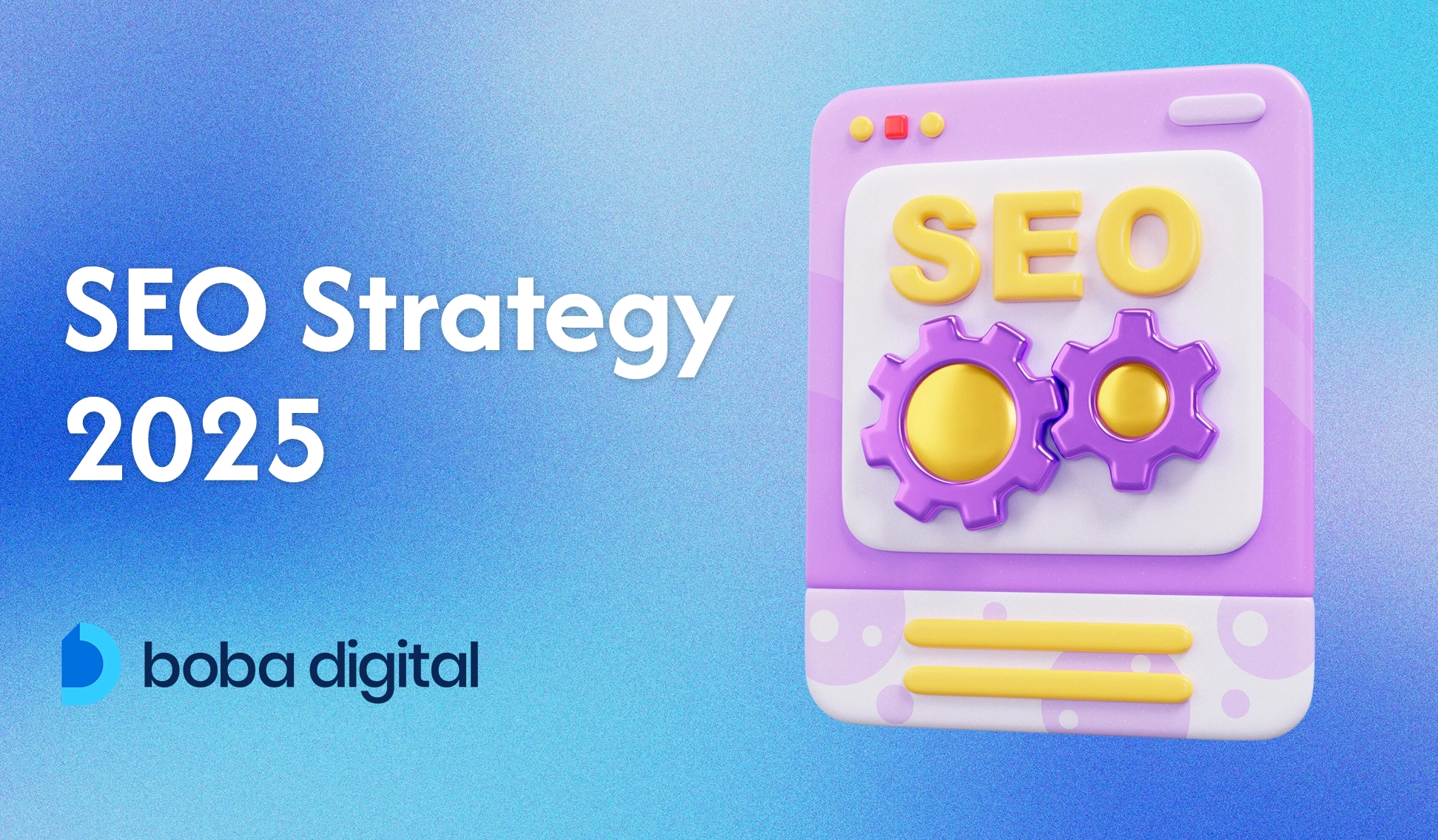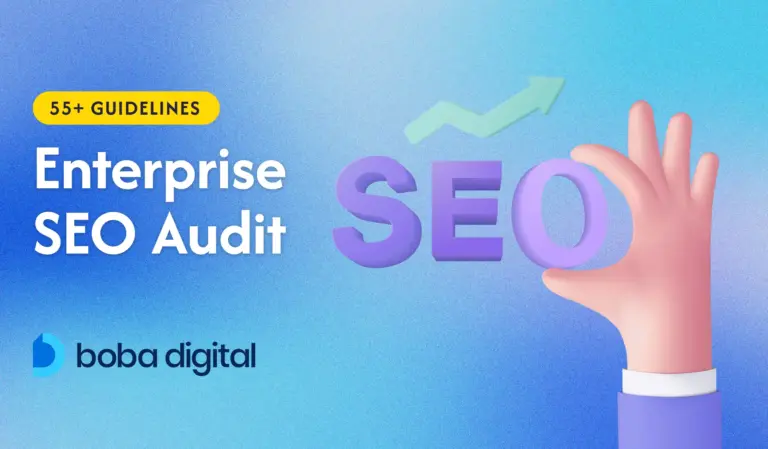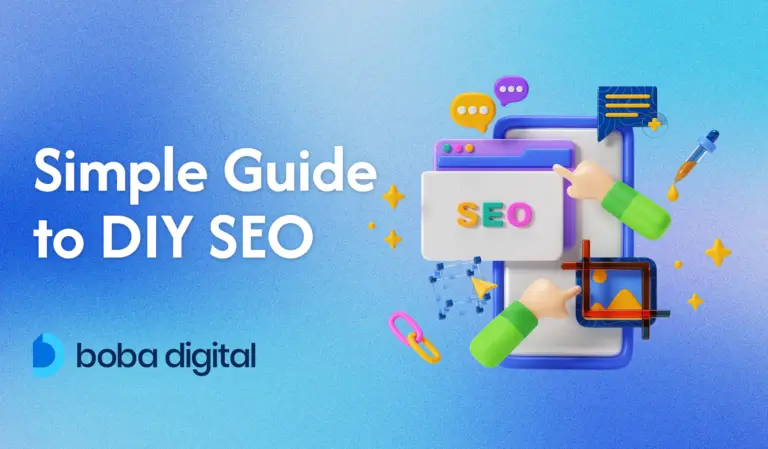SEO Strategy 2025 – Your Guide for Ranking #1 this Year
What’s the best SEO strategy 2025? Our detailed guide covers everything you need to adapt and thrive. From AI advancements to keyword research, on-page optimization, and backlink strategies, find out how to maintain top search rankings and increase your website’s visibility.
Introduction to SEO
Search Engine Optimization (SEO) is the process of improving the visibility and ranking of a website in search engine results pages (SERPs) through various techniques and strategies. Understanding how search engines work and what users are searching for is crucial for developing an effective SEO strategy. At its core, SEO involves keyword research, understanding user intent, and creating high-quality content that meets the needs of your audience. By aligning your content with what users are searching for, you can improve your website’s visibility and drive more organic traffic.
Understanding Search Engines
Search engines like Google use complex algorithms to rank websites based on relevance, authority, and user experience. These algorithms consider various factors, including keyword usage, link equity, and technical SEO elements such as site speed and mobile-friendliness. By understanding how search engines interpret and rank web pages, businesses and individuals can optimize their websites to improve search engine rankings and drive organic traffic. Technical SEO, which includes optimizing site structure, ensuring fast page load speeds, and implementing schema markup, plays a crucial role in helping search engines understand and rank your content effectively.
Key Takeaways
- Embrace AI tools for content creation and optimization to stay competitive in SEO, focusing on quality and relevance.
- Understanding user intent and utilizing advanced keyword research techniques are crucial for maximizing visibility and engagement.
- Regular content audits and adaptability in strategy will help navigate the evolving SEO landscape and enhance search rankings.
The Impact of AI on SEO
Artificial intelligence is revolutionizing the way search engines interpret and rank content, transforming SEO strategies. Leveraging AI for content creation, optimizing for answer engines, and staying updated with the latest SEO trends helps ensure your website’s visibility and high search rankings.
Adopting these AI-driven changes is essential for staying competitive in SEO.
Leveraging AI for Content Creation
AI tools can significantly enhance content creation by acting as efficient answer engines that improve visibility. AI can be utilized to generate content efficiently while maintaining quality. However, while AI can help produce ai generated content quickly, content quality must remain high. Additionally, these tools can help users to create content more effectively.
AI can help generate outlines and suggest expert sources, ensuring comprehensive topic coverage. Use AI as an editor to enhance content quality instead of relying on it entirely for writing.
Optimizing for Answer Engines
Optimizing content for AI-driven answer engines is key in today’s SEO landscape. Provide direct and concise answers to common questions to boost page visibility and user engagement.
Regular content updates and audits keep your information current and relevant, maintaining high search rankings.
Advanced Keyword Research Techniques

Strategically placing keywords is a fundamental aspect of SEO. A thorough understanding of keyword research is vital for an effective SEO strategy, along with grasping user intent.
Integrating relevant keywords into various elements of your website, such as content and meta tags, enhances visibility and rankings in search engines. Keywords help search engines understand content and match it with user queries. Long-tail keywords are valuable as they rank higher and attract more relevant traffic.
User Intent Analysis
Understanding search intent is crucial for crafting content that aligns with user’s intent and the target audience. Search algorithms enable search engines to better distinguish between learners and buyers, making it important to analyze how different demographics interact with search behavior and search results.
Google Search Console offers insights into the search terms search users employ, allowing you to tailor content to match user intent.
Using Keyword Research Tools Effectively
Keyword research tools like SEMrush, Ahrefs, and Google Keyword Planner offer insights into search volume, competition levels, and target keywords gaps. Incorporating related searches enhances content relevance and comprehensiveness for both search engines and users.
Tools like SEMrush can reveal gaps in keyword coverage, providing targets for content creation.
Enhancing On-Page SEO Elements

On-page SEO significantly influences rankings, traffic, and conversions. Essential on-page elements include core web vitals, page titles, meta descriptions, header tags, images, and featured snippets. Using long-tail keywords in URLs and image alt tags while avoiding keyword stuffing is key for search engine alignment.
Internal linking is a key strategy in SEO, guiding both search engines and users to navigate through a website effectively. Well-structured internal linking can support the development of topical authority and improve the likelihood of ranking higher by making relevant information more accessible.
Crafting Effective Title Tags and Meta Descriptions
Title tags specify the title of a webpage and improve click-through rates. Meta descriptions should be under 150 characters. Including the target keyword at the beginning of title tags can enhance ranking potential, while unique and descriptive meta descriptions increase click-through rates.
Image Optimization Best Practices
Optimizing images enhances page load speed, critical for user experience and SEO performance. Search engines increasingly prioritize high-quality visual content like images and videos, contributing to better visibility. Descriptive filenames and alt text improve SEO by providing context to search engines.
Effective image optimization techniques enhance both SEO outcomes and overall user engagement.
Building a Robust Backlink Profile

High-quality backlinks are crucial for enhancing a website’s domain authority and improving search rankings. Brand authority is now more focused on the quality and context of links rather than their quantity.
Internal links are equally important as they guide both search engines and users through the site, enhancing visibility and helping search engines identify key pages.
Link building strategies include guest blogging, the skyscraper technique, and broken link building to acquire valuable backlinks.
Guest Blogging for Backlinks
Targeting niche blogs for guest posts can generate relevant backlinks and audience engagement. Guest blogging is a strategic method to acquire backlinks while contributing valuable content to other blogs.
Guest blogging can improve your website’s authority, increase traffic, and foster relationships with other bloggers. Best practices include creating high-quality content and ensuring the blog post aligns with your niche for maximum impact.
Broken Link Building
Broken link building involves finding broken links on relevant sites and offering your content as an alternative for backlinks. It involves searching for non-functioning external links and contacting website owners with alternative links.
Broken link building helps secure valuable backlinks and improves your website’s SEO standing.
Structured Data Implementation
Structured data helps search engines interpret content better, leading to rich results. It increases the chances of appearing in relevant search results and improves categorization and search relevance.
Proper implementation of structured data helps search engines quickly identify key information on a webpage and optimize knowledge panel details.
Schema Markup Benefits
Schema markup organizes content clearly, aiding search engines in understanding page context and intent. It enhances the visibility of web content, making it more attractive in search results.
Applying recipe markup highlights essential details such as cooking time, calorie count, and user ratings to improve user engagement. Implementing product, offer, and review structured data is recommended to boost chances of higher search rankings.
Implementing structured data types enhances search visibility and ensures better alignment with semantic SEO principles.
Implementing Structured Data
Structured data is crucial for enhancing search visibility and achieving rich snippets. Schema markup provides a standardized format to help search engines interpret your content more effectively, resulting in enhanced search results.
Incorporating structured data on your web pages improves indexing and makes your content more relevant in search outcomes.
Optimizing for Mobile Users
Mobile-first indexing relies heavily on the mobile version of a website for determining rankings. Improving user retention positively impacts SEO rankings. User experience factors such as Largest Contentful Paint and Interaction to Next Paint are key metrics for optimization.
Search engines prioritize sites that are easy to use and effectively answer user questions, making search engine optimization essential for high search rankings.
Mobile-First Indexing Requirements
Mobile-first indexing prioritizes the mobile version of a website for ranking purposes, making it the primary version of your content and impacting direct ranking factor, rankings, and website’s visibility in search results.
Enhancing Mobile User Experience
Responsive web design is favored for its ease of implementation and maintenance. Using high-quality images and maintaining their resolution on mobile sites is important for user experience. Avoid lazy loading for primary content on mobile pages as Google may not index it properly.
Mobile optimization is vital for improving user experience on mobile devices, directly impacting navigation and usability.
Content Strategy for 2025
Content should help the brand resonate with its audience amid increased digital noise. Strategies need to prioritize creating user experiences while establishing topical authority through comprehensive coverage of specific subjects.
Crafting cornerstone content positions a website as a trusted authority and optimizes for core web vitals.
Creating Topic Clusters
A topic clustering structure signals comprehensive topic coverage and expertise to search engines. When creating content around a topic, develop multiple pieces addressing related subtopics and audience questions. Structure content with clear headings and organized hierarchies for better navigation.
A well-structured topic cluster includes a pillar page and multiple supporting pages.
Regular Content Audits
Regular content audits are essential to discover outdated content and improve overall site authority. Updates signal to search engines that a site is active and relevant, enhancing chances of appearing in zero-click features. Monitoring trends, engaging with the audience, doing keyword research, and repurposing content help keep content fresh and relevant.
Pruning non-performing pages can significantly improve overall performance and search engine ranking. If traffic declines on pages ranking for outdated keywords, manually updating content and titles is recommended. Regular content audits help maintain relevance by refreshing outdated information.
Content Marketing and Promotion
Content marketing is a critical aspect of SEO, as it helps attract and engage target audiences. Creating high-quality, relevant, and valuable content can improve website visibility, drive organic traffic, and increase search engine rankings. By consistently producing content that addresses the needs and interests of your audience, you can establish your website as an authority in your industry and build trust with your visitors.
Leveraging Content Marketing
Content marketing involves creating and promoting content through various channels, including social media platforms, blog posts, and guest blogging. By leveraging content marketing, businesses can establish themselves as authorities in their industry, build trust with their target audience, and drive more traffic to their website. Effective content marketing strategies include thorough keyword research to identify what your audience is searching for, creating content that addresses these queries, and promoting your content through social media and other channels to reach a wider audience. Engaging with your audience on social media platforms can also help build a community around your brand and drive more traffic to your website.
Local SEO and Search Results
Local SEO is essential for businesses that operate in specific geographic locations. Optimizing a website for local SEO can improve search engine rankings, drive more traffic, and increase conversions. By focusing on local search terms and optimizing your online presence for local searches, you can attract more customers from your target area.
Optimizing for Local SEO
Optimizing for local SEO involves using location-specific keywords, creating content relevant to the local audience, and building high-quality backlinks from local sources. Businesses can also use tools like Google My Business to improve their online visibility and drive more traffic to their website. By understanding local search behavior and optimizing their website accordingly, businesses can improve their search engine rankings and attract more local customers. This includes ensuring that your business information is accurate and consistent across all online platforms, encouraging customer reviews, and engaging with your local community through content and social media.
Adapting to Zero-Click Searches
The rise of zero-click searches means users can often find the answers they need directly on the search results page without clicking through to a website. As users increasingly expect quick answers, zero-click content is crucial for businesses to maintain visibility.
Users can find information without clicking, shifting user behavior towards seeking quick and direct answers.
Optimizing for Featured Snippets
Featured snippets are highlighted search results displayed above organic results aimed at answering user questions. To optimize for a featured snippet, structure content concisely and informatively.
To enhance the chances of appearing in featured snippets, responses should be clear and concise, ideally within 40-60 words. Bullet points and numbered lists improve content organization and help search engines easily parse the information.
Creating Concise, Authoritative Content
Engaging, trustworthy content that answers search intent is crucial for success in zero-click searches. Google search results aim to provide users with relevant content that meets their search intent, making concise answers vital.
AI summaries in search results predict follow-up questions and provide extra context, enhancing user understanding. Concise answers to common questions are essential to drive traffic in the era of zero-click searches.
Tracking and Measuring SEO Success
Measuring SEO performance is crucial for understanding the impact of strategies and identifying areas for improvement. User experience and satisfaction will increasingly influence SEO rankings as Google emphasizes user engagement metrics. Optimizing for Core Web Vitals is critical for enhancing site performance and aligning with evolving SEO standards.
To track and improve conversions, monitor metrics like email sign-ups, social follows, and trial registrations. Analyzing website traffic and revenue can help identify trends relevant to SEO success. Develop expertise in keyword research, refine on-page factors, improve user experience, and track SEO effectiveness to enhance your digital footprint.
Track success to optimize strategies and measure effectiveness for continuous improvement.
Utilizing Google Analytics GA4
Google Analytics is a powerful tool for tracking SEO tools metrics. Google GA4 can track organic search traffic, user interactions, and conversion rates. GA4 facilitates informed decision-making, allowing refinement for improved performance.
Monitoring Core Web Vitals
Core Web Vitals are essential for measuring critical aspects of user experience, influencing search engine rankings. Maintaining optimal Core Web Vitals prevents drops in search rankings caused by poor user experiences.
Integrating SEO with Broader Marketing Efforts
Utilizing social media to share content can help attract backlinks from those who find it valuable. Using SEO insights in email marketing boosts engagement by aligning content with audience searches. A multichannel marketing strategy is vital for maximizing online presence and engaging customers effectively.
Combining SEO with paid advertising can generate immediate visibility while supporting long-term growth.
Collaborating Across Teams
Finding new ways to leverage data and collaborating across efforts helps break out of silos in marketing. Collaborative efforts allow teams to share insights and skills, enhancing overall SEO effectiveness.
Utilizing CMS platforms can streamline the management of author credentials and profiles, improving trust and visibility. Successful collaboration leads to a collective expertise that drives better SEO outcomes.
SEO’s Role in Digital Marketing
SEO is pivotal in shaping digital marketing strategies, directly influencing content visibility and customer engagement. Effective collaboration across teams can lead to new ways of utilizing data in marketing seo efforts.
Effective collaboration between SEO and other marketing teams enhances overall marketing strategies and boosts collective performance. Incorporating keyword suggestions from tools can significantly improve the effectiveness of your content marketing strategy.
Cross-channel analytics are essential for measuring SEO’s impact throughout the customer journey.
Preparing for Future SEO Trends
Disruptive changes in SEO, particularly with generative AI and Google’s Helpful Content Update, have reshaped the landscape of search optimization. Endless opportunities to perfect strategies are expected for businesses due to AI’s influence on SEO in 2025. In 2025, companies will likely increase their investment in SEO as competition and new AI tools drive demand.
Search engines are prioritizing more conversational language to enhance user engagement and reduce spam. Connecting users with helpful, relevant information remains the core goal of SEO despite shifting algorithms and practices. The evolving search experience from Google is ready to disrupt SEO best practices, making it essential to adapt to stay relevant.
The traditional SEO playbook is no longer effective, requiring a more adaptable approach that embraces proven fundamentals. Understanding experience, expertise, authoritativeness, and trustworthiness (E-E-A-T) is essential for enhancing content and aligning with search engines’ perspectives. To succeed in the future, SEO strategies must balance adaptability with proven tactics while focusing on user-first experiences.
Staying Updated on Algorithm Changes
Keeping abreast of search engine algorithm updates is crucial for adapting SEO strategies and maintaining competitive advantages. Staying updated on trends, best practices, and algorithms is required for mastering SEO. Google updates its algorithm approximately 500-600 times per year.
Some reputable SEO news sources include the Journal, Search Engine Roundtable, and Search Engine Watch. These are great for staying informed about trends. Regularly modifying SEO approaches is essential to sustain rankings and attract organic traffic.
Building an Adaptive SEO Strategy
An adaptable SEO strategy incorporates flexibility to respond to evolving trends and user behaviors in search queries. Incorporating user feedback and performance data into content strategies is essential for maintaining relevance.
Adaptability and commitment to user value are essential for mastering SEO in 2025. Creating tailored content is crucial as AI systems improve at understanding user intent. An agile approach is recommended to prepare for SEO in 2025.
Regular content performance analysis helps keep content relevant and effective. Optimize for Core Web Vitals as an additional consideration when preparing for search engine advancements.
Summary
In summary, mastering SEO in 2025 involves understanding and leveraging AI, advanced keyword research techniques, on-page SEO elements, and building a robust backlink profile. Structured data implementation, mobile optimization, content strategy, adapting to zero-click searches, tracking SEO success, and integrating SEO with broader marketing efforts are also crucial. Staying updated on algorithm changes and building an adaptive SEO strategy will ensure continued success. Embrace these strategies to stay ahead of the competition and dominate the search results.
Frequently Asked Questions
How can AI impact my SEO strategy in 2025?
AI will revolutionize your SEO strategy in 2025 by enhancing content creation and optimizing for search engines, taking your rankings to new heights with personalized content organization. Embrace this change to stand out and thrive in the digital landscape!
What are the best practices for keyword research in 2025?
To excel in keyword research in 2025, prioritize understanding user intent, leverage advanced tools, and integrate long-tail keywords to drive targeted traffic. Embrace these strategies and watch your visibility soar!
How important is mobile optimization for SEO?
Mobile optimization is vital for SEO since search engines now prioritize mobile-first indexing, affecting your rankings and user experience. Prioritize mobile optimization to stay ahead!
What is the significance of structured data in SEO?
Structured data is crucial for SEO as it enables search engines to understand and showcase your content more effectively, enhancing visibility and attracting more clicks. By implementing it, you set your website up for richer search results and greater engagement!
How can I adapt to the rise of zero-click searches?
You can successfully adapt to the rise of zero-click searches by optimizing for featured snippets and creating concise, authoritative content that provides value directly on search results pages. This approach enhances your visibility and meets users’ needs effectively.









